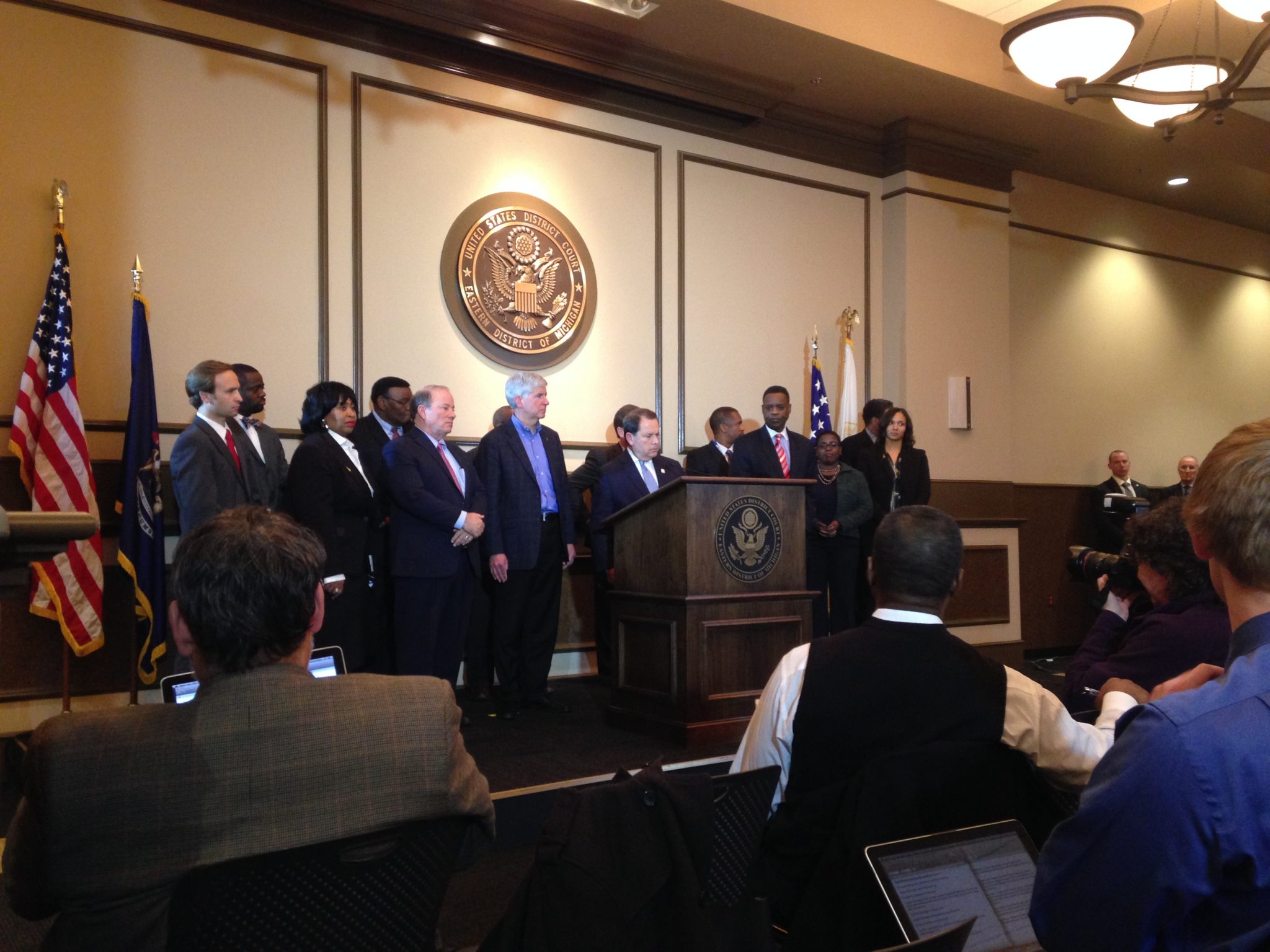Reporters, Retirees Look Back at Detroit’s Bankruptcy Five Years Later
“This was a city that faced a financial cataclysm.”


July 18th, 2018 marks the fifth anniversary of the City of Detroit’s historic bankruptcy—the largest municipal bankruptcy ever. The decision wiped away about $7 billion of the debt, allowing for the city to reset.
Opponents argued that this decision jeopardized the pensions that retired city employees rightly deserved.
Supporters believed the bankruptcy was necessary in allowing the city to balance its books and reinvest in the city services that the people of Detroit depend on.
Detroit Today host Stephen Henderson speaks with Sam Katz, a producer and director of a documentary in production about the bankruptcy case and its impact on Detroiters, Nathan Bomey, a reporter with USA Today who covered the bankruptcy for the Detroit Free Press, and Sandra Svoboda, a reporter for WDET who also covered the bankruptcy.
On what the bankruptcy accomplished:
“This was a city that faced a financial cataclysm. This was really a humanitarian crisis,” says Bomey. “I think what the bankruptcy tried to accomplish was to reset the narrative, but more than that, to give the city a financial fresh start and to allow the city to reinvest in services for the first time in ages.”
On what the bankruptcy represents:
“What the bankruptcy to me represents is a powerful warning to the rest of the country, not just cities and states but also to the nation, that when you kick the can down the road for a very long time and when it finally comes to roost, it will be cataclysmic,” states Katz.
“The bankruptcy for Detroit represents both an end and a beginning,” says Katz. “It is not a saving mechanism. It may have saved the city government and given it a new lease on life, but it is not responsible for what will happen in the future of Detroit.”
Henderson also speaks with Shirley Lightsey, former president of the Detroit Retired City Employees Association, who had a seat at the table in negotiating the pension deal.
On why the settlement was devastating but necessary:
“I thought our pensions were safe because of the state rule, but when they told us the federal government set that aside because they were the federal government. It was just very hard to swallow but we had to continue on and do the best we can,” says Lightsey.
“If we had not settled on December 10th in 2014, the city of Detroit would have been on hold until the bankruptcy was finished. By the retirees stepping up to the plate voting to accept the plan, we really, in reality, saved the city of Detroit a lot of grief.”
Click on the audio player above to hear the full conversation.

